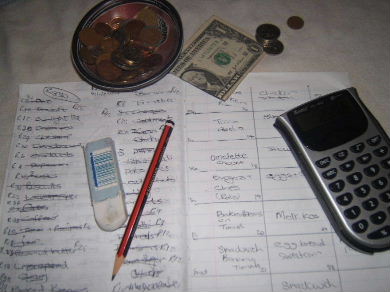|
Grocery Shopping
I'm one of those people who go grocery shopping armed with a calculator, shopping list and with my shopping bags - don't leave home without these.
Relying purely on memory as to what is and is not in your cupboard will result in over shopping and also forgetting to buy some essentials.
This method also leaves you no control over the amount you are about to spend.
This is where a bit of forward planning will help... HOW TO SAVE ON GROCERIES.
So what does a typical grocery list look like? Have a look at mine and tweak it a bit to suit your individual needs. But before you go grocery shopping, list in hand, remember...
Return from the grocery shopping page to the Frugal Shopping Page
|






